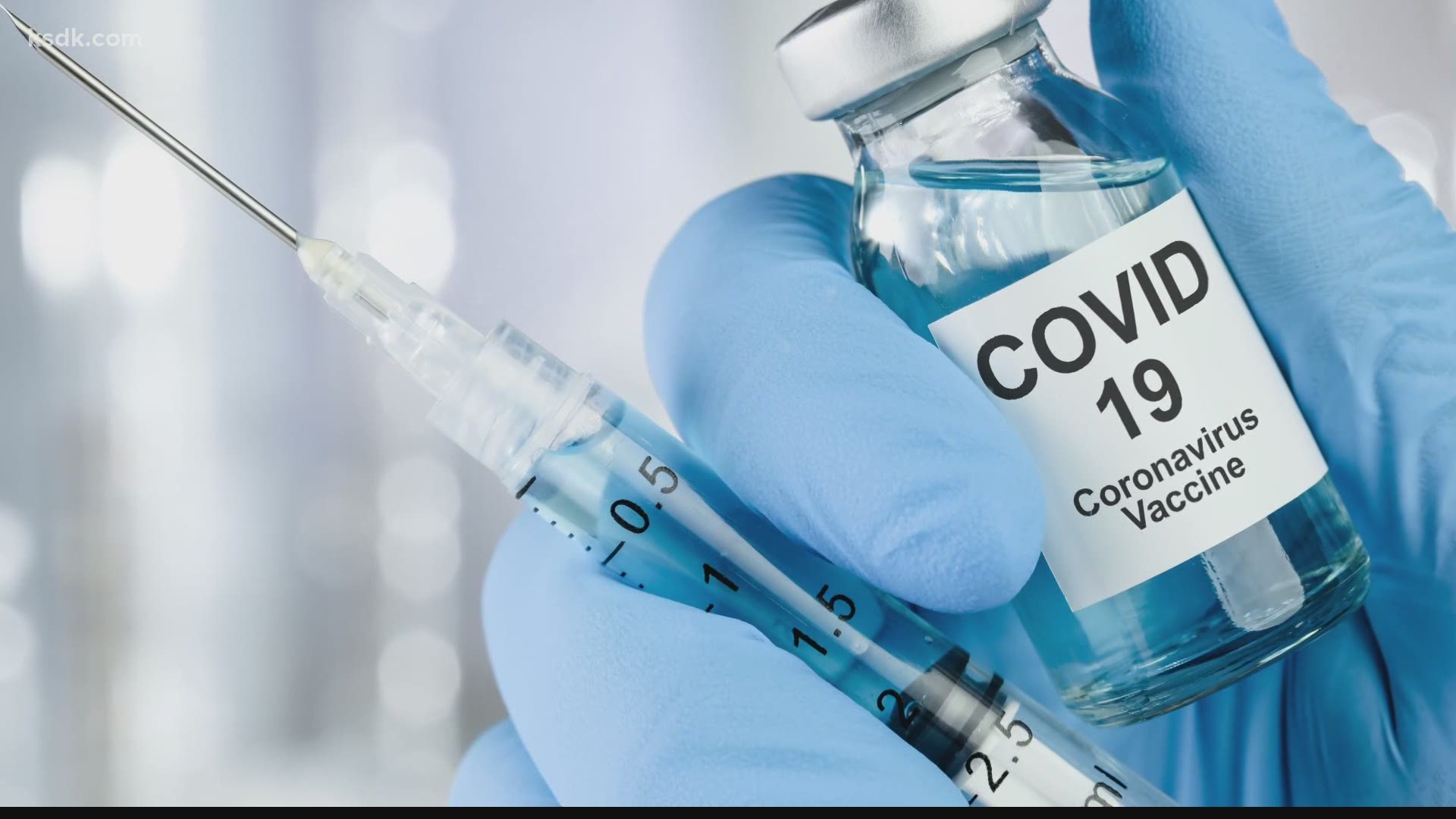ST. LOUIS — As of Thursday, almost half of St. Louis County and St. Charles County residents 65 or older are fully vaccinated against COVID-19, according to data from the Centers for Disease Control and Prevention. Now they’re the target of email scammers who are trying to trick vaccine recipients into offering up their personal information.
Jackie Puzniak of Kirkwood got two of the scam emails weeks after she got the COVID-19 vaccine. The emails look professional and use the name and logo of Pfizer, the most commonly administered COVID-19 vaccine so far.
“It starts out with a COVID vaccine, it says Pfizer and everybody knows it’s Pfizer that does that, so it seems like a positive thing. And they want you to do a survey,” said Puzniak. “And then you could get a prize, valued at $90.”
Puzniak recognized the email as a scam right away.
“I am a doubting Thomas,” she said. “There was something about it that said, this doesn’t seem right.”
Her daughter, an epidemiologist, confirmed to her that the emails are not authentic. In the last week, announcements from the Federal Trade Commission and the Department of Justice also warned people against clicking links in emails asking for feedback from COVID-19 vaccine recipients.
The FTC said the emails come from scammers trying to get personal or financial details.
“I think a lot of people right now feel as though, whatever they can do to contribute to what we're all dealing with, if this is something they can do to provide information, maybe that's a good thing, but again, all of these surveys are scams. So people should not click on links, should not open attachments, do not share information,” said Colleen Tressler, senior project manager of consumer and business education at the FTC.
The scammers often get the information they’re really looking for when they start offering prizes or rewards, she added.
“That means turning over credit card information, debit card information, bank account information. All of that can be used to commit fraudulent charges against your accounts, as well as take the personal information for identity theft,” Tressler said. “If there's an attachment, you could be opening yourself up to malware being downloaded on your devices.”
While the emails may seem targeted to people who just received the COVID-19 vaccine, Tressler pointed out that scammers are probably just guessing at who is eligible and what kind of vaccine they would have gotten.
“I think scammers always cast a wide net, so it could be anyone who's gotten the vaccine, anyone who is about to get the vaccine, the general population,” said Tressler.
Puzniak didn’t click on the links in the emails she received. She noticed two details that raised red flags. Both emails came from email addresses that had nothing to do with Pfizer. The other suspicious factor was all the typos.
“I’m one of those freaky people who notice misspellings,” she said, laughing.
Tressler said that many of the people reporting the emails to the FTC are telling her that they knew the signs to look out for and didn’t click on the links or fill out the surveys.
“When people get emails from individuals and organizations, out of the blue, that they don't know, that they don't recognize, I think people really know not to take those next steps,” she said.
Puzniak summed up her rule of thumb to share with everyone else targeted by scammers: “If it sounds a little suspicious then don't do it, get rid of it as fast as you can.”
The FTC asks consumers to report fraud on their website. There you can also find more information about COVID-19 related scams and how to avoid them.
The DOJ asks people to report COVID-19 related scams to the National Center for Disaster Fraud, which has a complaint form online and a hotline at 1-866-720-5721.
Anyone who clicked on the links or provided information to the scammers can use the FTC’s identity theft victim resource website to report identity theft and learn the next steps to prevent unauthorized purchases or credit applications.

